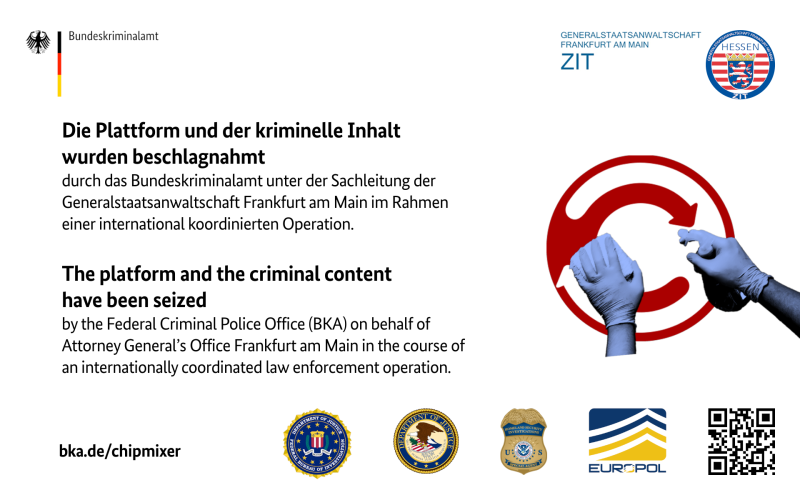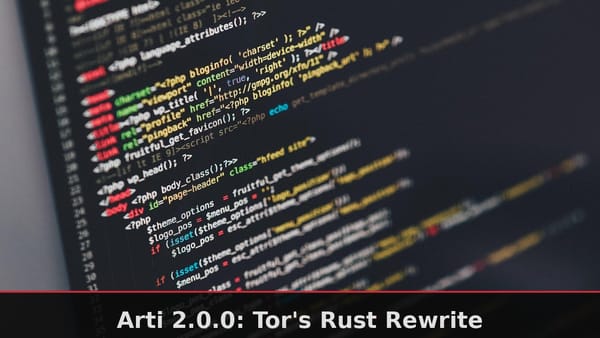Why Every Major Bitcoin Mixer Got Users Arrested: ChipMixer, Tornado Cash, and Samourai Cases
ChipMixer, Tornado Cash, and Samourai Wallet failures show that Bitcoin mixing services create surveillance databases and legal liability.

Bitcoin mixing services have consistently failed to protect user privacy, with ChipMixer's seizure exposing years of transaction logs, Tornado Cash developers facing criminal charges despite building a decentralized protocol, and Samourai Wallet operators arrested for conspiracy charges related to their mixing service.
ChipMixer's Centralized Architecture and Complete Failure
ChipMixer operated from 2017 until its March 2023 seizure by law enforcement, claiming to provide transaction privacy through a mixing service that would break the connection between users' input and output addresses.

The service's fundamental flaw was its centralized architecture where all mixing operations occurred on servers controlled by a single entity, creating a complete record of every transaction that users believed was anonymous. When German authorities seized ChipMixer's servers, they recovered 7 TB of transaction data spanning the service's entire operational history, including detailed logs connecting input addresses to output addresses for every mixing operation.
This data trove allowed law enforcement to retroactively de-anonymize every ChipMixer user, turning what users thought was a privacy tool into a comprehensive surveillance database that documented years of supposedly anonymous transactions. The ChipMixer seizure revealed that centralized mixing services create honeypot conditions where a single law enforcement operation can expose the entire user base, making such services fundamentally unsuitable for any serious privacy requirements.
Beyond the transaction logs, ChipMixer's servers contained Bitcoin reserves that users had deposited for mixing, with law enforcement seizing approximately 1,909 bitcoins worth over $46 million at the time. The service's operators had been charging fees while maintaining complete records that nullified any privacy benefits, essentially running a paid surveillance operation disguised as a privacy service. Users who relied on ChipMixer for transaction privacy discovered that their supposedly anonymous activities were comprehensively documented and available to law enforcement agencies worldwide through international cooperation agreements.
Tornado Cash and the Criminalization of Privacy Tools
Tornado Cash represented a different approach to transaction mixing through smart contracts on the Ethereum blockchain, but developers Alexey Pertsev and Roman Storm still faced arrest and money laundering charges in 2023 for creating and maintaining the protocol.

Unlike centralized mixers, Tornado Cash operated through immutable smart contracts that executed mixing operations automatically without requiring trust in a centralized service provider, theoretically providing better privacy guarantees than services like ChipMixer.
However, the arrests of Tornado Cash developers demonstrated that law enforcement agencies are willing to prosecute the creators of privacy tools regardless of their decentralized nature, arguing that providing mixing services constitutes money laundering conspiracy even when developers don't control individual transactions.
The U.S. Treasury Department's sanctions against Tornado Cash in August 2022 marked the first time that decentralized smart contract addresses were added to the sanctions list, creating legal uncertainty about whether using or developing privacy-preserving protocols constitutes criminal activity. Roman Storm's indictment alleged that Tornado Cash facilitated over $1 billion in money laundering transactions, including funds stolen by North Korean hackers, despite the protocol being available for any user to access without developer involvement in specific transactions.
The prosecution argued that by creating and promoting Tornado Cash, the developers were operating an unlicensed money transmitting business and conspiring to commit money laundering, establishing a legal precedent that could criminalize the development of any privacy-enhancing technology.
The Tornado Cash cases illustrate that even decentralized privacy tools face legal challenges when governments decide to treat privacy itself as evidence of criminal intent, making any Bitcoin mixing approach legally risky regardless of technical implementation.
Samourai Wallet's Whirlpool Service and Federal Charges
Samourai Wallet founders Keonne Rodriguez and William Lonergan Hill faced federal arrest in April 2024 on charges of conspiracy to commit money laundering and operating an unlicensed money transmitting business through their Whirlpool mixing service.
The indictment alleged that Samourai facilitated over $2 billion in unlawful transactions through Whirlpool, including funds from darknet markets, and that the developers promoted their service specifically for criminal activities while taking fees from mixed transactions. Unlike simple wallet software, Samourai's Whirlpool service required users to connect to centralized coordinator servers that organized mixing rounds between multiple participants, creating infrastructure that prosecutors argued constituted operating a money transmitting business without proper licenses.

The criminal charges against Samourai's developers included allegations that they marketed their services to criminals, provided technical support for illegal activities, and structured their operations to evade law enforcement detection while profiting from transaction fees. Court documents revealed that law enforcement had been monitoring Samourai's operations for years, collecting evidence of the developers' communications and promotional activities that prosecutors used to argue criminal intent beyond simply providing privacy tools.
The Samourai case demonstrates that Bitcoin mixing services face prosecution risk even when implemented as optional features within broader wallet applications, since the mixing functionality itself can be treated as a separate money transmitting business subject to federal regulation.
Rodriguez's arrest in Pennsylvania and Hill's arrest in Portugal show how international cooperation enables prosecution of cryptocurrency privacy tool developers regardless of their physical location, with both facing potential extradition and decades in federal prison.
The seizure of Samourai's website and mobile application removed the service from availability, demonstrating how centralized coordination requirements create single points of failure that law enforcement can exploit to shut down mixing operations entirely.
These cases collectively demonstrate that Bitcoin mixing services, regardless of their technical architecture, face fundamental legal and operational vulnerabilities that make them unsuitable for users who require reliable privacy protection against law enforcement investigation.




